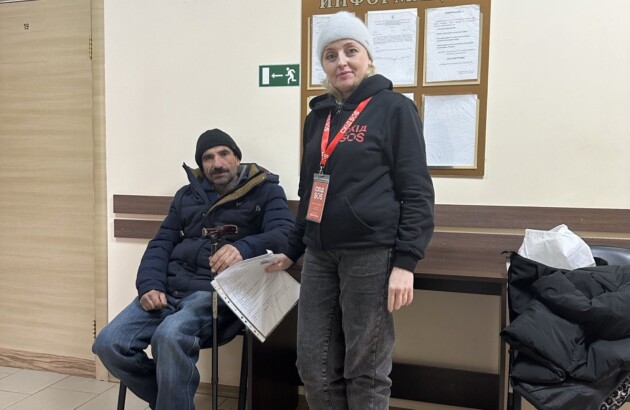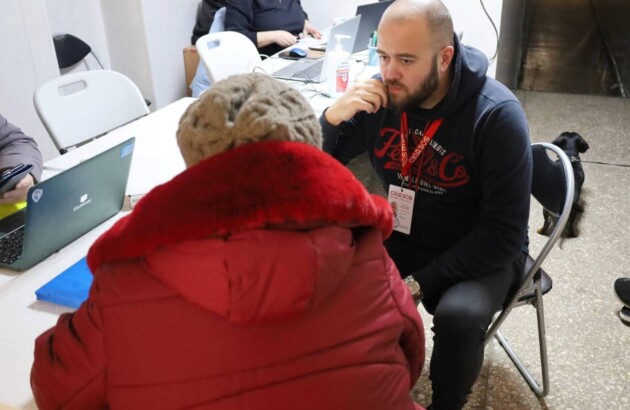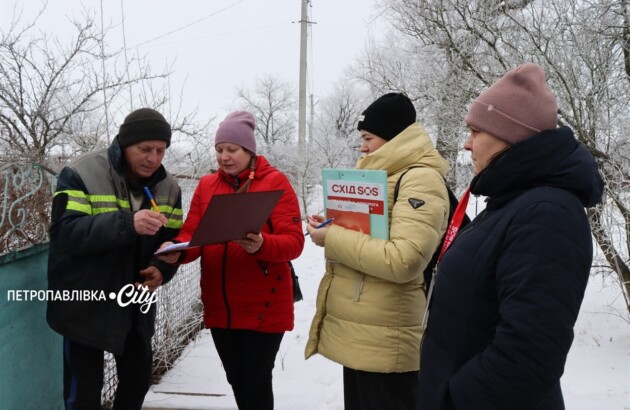Arif Bagirov: “There is not a single house in Severodonetsk that has not been hit…”
Arif Bagirov is a Severodonetsk activist, media person, and volunteer. For him, like for most residents of the Luhansk region, the confrontation with the russian federation did not begin on February 24, but much earlier – in April 2014, when a flash mob organized by him in support of the territorial integrity of Ukraine was attacked by pro-russian youths. Then there was an attempt by the militants of the so-called “LNR” to arrest the activist, due to which Arif was forced to leave Severodonetsk for several months.
Rumours that something will happen have been going on for a long time… We have been living in this pre-war-semi-war state for 8 years, and in recent weeks the situation has worsened even more.
On the night of February 24, I stayed overnight with Roman Myronov, the frontman of the band “End of July”, at the rehearsal studio. In the morning he woke me up and said “Arif, war!” I said: “What war? We already have it, what are you talking about?! This is not the reason to wake me up at six! He replied that everything was much more serious: the russians had crossed the border in several places, airstrikes and mass bombings had already been in most regions of Ukraine. And I understood that it had already started and something needed to be done.
I immediately decided that I would stay in Severodonetsk as long as possible and be useful, but I did not know yet what I would do.
From the first days of the full-scale invasion, Severodonetsk suffered from shelling. Artillery strikes were carried out on the airfield on the outskirts of the city, on food warehouses, gas stations and residential areas. It was a real unorganized shelling. That is, it was not a matter of hitting military facilities, because there were no military facilities in Severodonetsk. The residential areas of the city were the first to be hit.
At the beginning of March, the russian military also shelled the central streets of Severodonetsk. It was then that the blast wave shattered the windows in the house where I lived. After this incident, I sent my father out of the city, but I stayed and lived under shelling for another three months – until the end of May.
During this time, I tried to be as useful as possible to the people of Severodonetsk – together with other volunteers, I delivered medicines to the elderly, took care of animals left in abandoned apartments, helped the cultural institutions of the city to evacuate the collection of the Volodymyr Sosyura museum, archaeological finds from the East Ukrainian National University, paintings by Borys Romanov.
The most difficult thing for me at that time was not living in constant danger, but communicating with those who were openly waiting for the russian military. We had a grandmother living in the same entrance, with whom we once hid in the basement during the shelling, and at that time she said that the NATO bio laboratories were to blame for everything. And I had to listen to this nonsense?! I couldn’t resist and said to her: “The one who is destroying my house now is my enemy, and that’s the end of my philosophy!” I don’t know who is to blame for what, but the shells flying into my house are russian!” That’s how we ended the conversation.
However, I rarely went down to the shelter but spent the night in my apartment. During all the time, I was there two or three times, when the russian military targeted the city centre. There were many people there even without me – I tried not to take up too much space.
After two and a half months of constant shelling, Severodonetsk turned into a dead city. Since the middle of May, there were no signs of the city as an urban object. That is, there was no utility service, electricity, gas, water, or Internet. There were no more usual things, the benefits of civilization, neither hospitals nor firefighters. Already in May, the city was inoperable. All the houses in my block were hit by russian shells. It even flew into the building of the Red Cross, which was nearby. There is probably not a single building in the city that has not been hit. All addresses in Severodonetsk can be taken and crossed out. Houses burned to the ground.
I decided to leave Severodonetsk in the second half of May, and I left on May 21, 2022. On the day of departure, the apartment below me was hit, and a small earthquake occurred at home. And when I was already driving from Severodonetsk, it flew into the neighbouring apartment on the right. By the time I left, for a week or even more, I heard how fighting was going on in the city every day: in the area of the park, maybe even in the Druzhby Narodiv Street. Very close, closer and closer – machine guns, assault rifles. On this day, I crossed the line of the zone of active hostilities on a bicycle, covering about 70 kilometres to a relatively safe area – the city of Bakhmut, Donetsk region. Why a bicycle? And why not?
Currently, I plan to start a new life in Kyiv – I don’t want to wait idly until Severodonetsk is liberated. Moreover, even a liberated city will be dangerous for life for a long time due to the remains of ammunition, and deliberately destroyed or badly damaged infrastructure.
For a long time, I did not know the fate of my apartment – at the end of May, there were street battles in Severodonetsk, and the artillery bombardment of the city became denser than before. Residential buildings that could have served as shelters for the military were destroyed by russian artillery without any thought about the proportionality of the use of force.
I heard that the building in front of mine is gone, and maybe my house is gone too. I just don’t know it, and I don’t even know when I’ll find it out, because there’s no one to ask. Where are the volunteers who stayed there, and what is their fate? I hope that everything is fine, that’s the first. And secondly, I said goodbye to everything a long time ago, because I was moving out of a half-broken apartment. For two nights I have been staying not in the room, but in the partition, because the windows were broken and the wind was blowing, it was cold.
The story of Arif Bagirov about the numerous violations of the rules of war recorded in articles 8 (b), (ii), (v), and (xx) of the Rome Statute, namely:
“ii) intentional attacks on civilian objects, that is, objects that are not military objectives”;
“v) attacks on unprotected and non-military targets, cities, villages, dwellings or buildings or their shelling using any means”;
“xx) use of weapons, ammunition and equipment, as well as methods of warfare of this nature, which result in excessive harm or unnecessary suffering, or which are indiscriminate for, in its essence, it violates the norms of the international law of armed conflicts.”
Although the Rome Statute has not yet been ratified by Ukraine, the absolute prohibition of attacks on the civilian population, civilian buildings, use of weapons of indiscriminate action, etc. is recorded in the Geneva Conventions and the customary law of war, which is binding on all armies of the world. War has rules, and the indiscriminate shelling of the city of Severodonetsk is a brutal violation of these rules.


